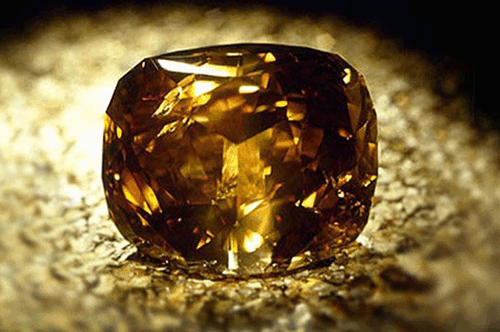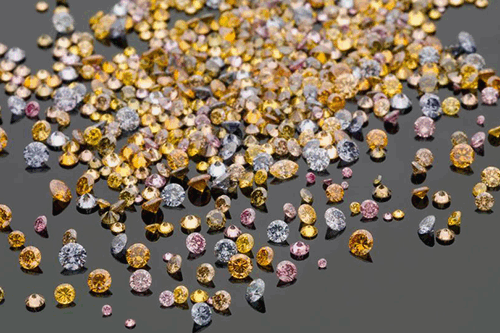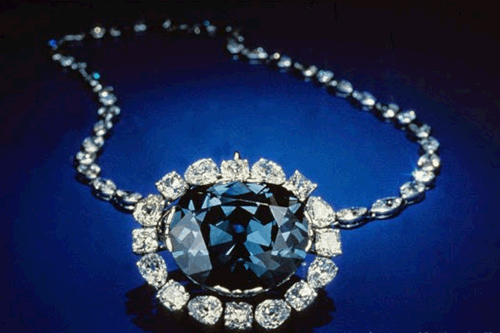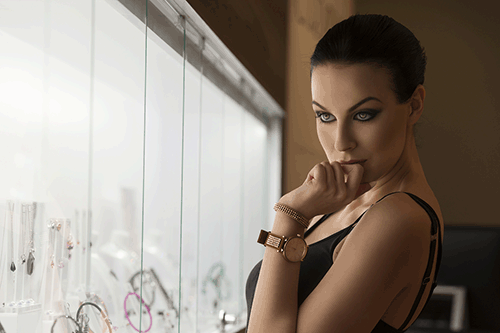|
Diamonds attract grease, thus they are duffucult to keep clean. When a diamond is handled repeatedly, the natural oils from your fingers adhere to the diamond’s surface and affect its sparkle and brilliance.
You should not wear your diamond jewelry when you
are doing work that is considered rough, especially when you are using tools.
A diamond, although it is considered one of the
hardest substances on Earth, will chip or crack if it is hit with enough
force at the right angle corresponding to its natural cleavage plane.
When doing household chores, keep your diamond
from coming into contact with harsh chemicals such as chlorine bleach,
etc.
Diamonds require cleaning from time to time, and
the settings need maintenance so that the gemstone will not fall out because
of some mechanical failure. Take your diamond
jewelry to a professional every year to make sure all is well on the setting.
Bear in mind that Platinum is the material of choice over gold as
it is stronger and more substantial. While your diamond is in for
maintenance, it will also get a professional cleaning and when you get it
back, it will glisten.
If you want to clean it yourself, consider the following:
1) Soak your diamond in water with a few drops of mild dish soap once or twice a week. 2) After you remove the stone from the cleaning solution, use a soft, clean toothbrush to remove any remaining dirt. The toothbrush should be new and used only for cleaning your jewelry. Use the brush to clean difficult-to-reach places like the back of the diamond, which seems to collect the most oil and dirt. 3) Fragile settings, such as aging prongs in antique jewelry or a "tension setting" which holds the diamond in place by pressure from the shank, should be scrubbed, gently with the toothbrush. 4) When finished, rinse your diamond jewelry with water and dry with a soft, lint-free cloth. CAUTION: If you’re working over or near a sink, make sure to close the drain or place a mesh cover over it.
|






